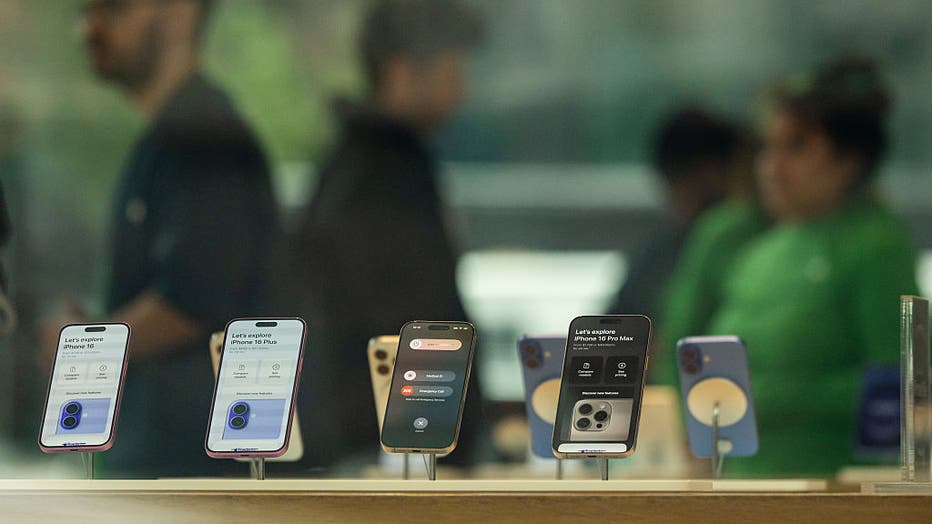Here’s how much a made-in-America iPhone could cost

President Trump takes questions on tariffs, Harvard
After signing a series of executive orders relating to nuclear energy, President Trump took questions from reporters in the Oval Office on topics such as iPhone tariffs, Harvard University, and car production in the United States.
LOS ANGELES - President Donald Trump is turning up the pressure on Apple, threatening to slap a 25% tariff on iPhones not made in the U.S. The move could make the cost of an iPhone skyrocket—potentially tripling prices for consumers.
The ultimatum comes as Apple shifts much of its production to India to avoid fallout from Trump’s broader trade war with China. But Trump wants the company to go further: "Build iPhones in America or pay the price," he posted on Truth Social.
Industry analysts warn that making iPhones domestically would likely push prices to levels most consumers have never seen—from today’s $1,000 average to as high as $3,500.
How much would a U.S.-made iPhone cost?
By the numbers:
According to Wedbush Securities analyst Dan Ives, building an iPhone in the U.S. would increase its cost to at least $2,000—and potentially as high as $3,500. That’s due to labor, infrastructure, and the complexity of Apple’s supply chain.
"For U.S. consumers, the reality of a $1,000 iPhone being one of the best-made consumer products on the planet would disappear," Ives recently told the Associated Press.
Apple currently assembles most of its iPhones in China and, increasingly, in India and Vietnam. The reason is not just lower wages, but a vast and flexible labor supply that doesn’t exist in the U.S.
Why it’s unlikely Apple will build iPhones in the U.S.
The backstory:
Apple CEO Tim Cook has said that moving production to the U.S. would take years and cost billions. At a 2017 event, Cook noted that China has such a large number of skilled tooling engineers that "you could fill multiple football fields," while in the U.S., he said, "you could barely fill a room."

IPhone 16 and iPhone 16 Plus smartphones at an Apple store in the Brooklyn borough of New York, US, on Friday, May 23, 2025. (Photographer: Yuki Iwamura/Bloomberg via Getty Images)
Although Apple has pledged $500 billion in U.S. investment through 2028, none of it is tied to iPhone manufacturing. Instead, it focuses on AI data centers and jobs in other parts of its ecosystem.
What they're saying:
Commerce Secretary Howard Lutnick recently told CBS News that tariffs would eventually force Apple’s production shift: "The army of millions and millions of human beings screwing in little screws to make iPhones, that kind of thing is going to come to America."
But analysts remain skeptical. "The concept of making iPhones in the U.S. is a nonstarter," Ives said, predicting Apple would opt for negotiation instead.
Apple did not immediately comment on the tariff threat. On a recent earnings call, Cook said tariffs had a "limited impact" in recent quarters due to supply chain optimization, but warned that future outcomes are hard to predict.
What’s next for iPhone pricing?
Big picture view:
Analysts believe Apple may raise prices this fall even without new tariffs, given inflation and declining service revenues. If tariffs are imposed, a price spike could come even sooner, prompting consumers to upgrade now before costs rise.
Apple’s services division, which earned $96 billion last year, has helped absorb some of the financial pressure. But a recent court ruling could dent those profits, removing another buffer against potential price hikes.
The Source: This article is based on reporting from the Associated Press and Axios. Additional context and expert analysis were provided by Wedbush Securities, Forrester Research, and statements from U.S. Commerce Secretary Howard Lutnick. Apple’s financial data and past statements were drawn from recent quarterly earnings calls.

